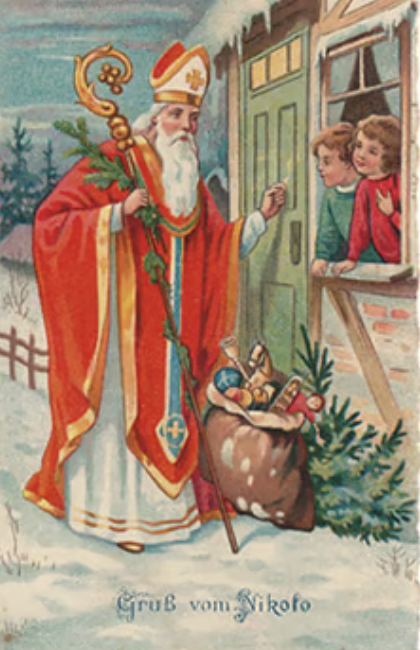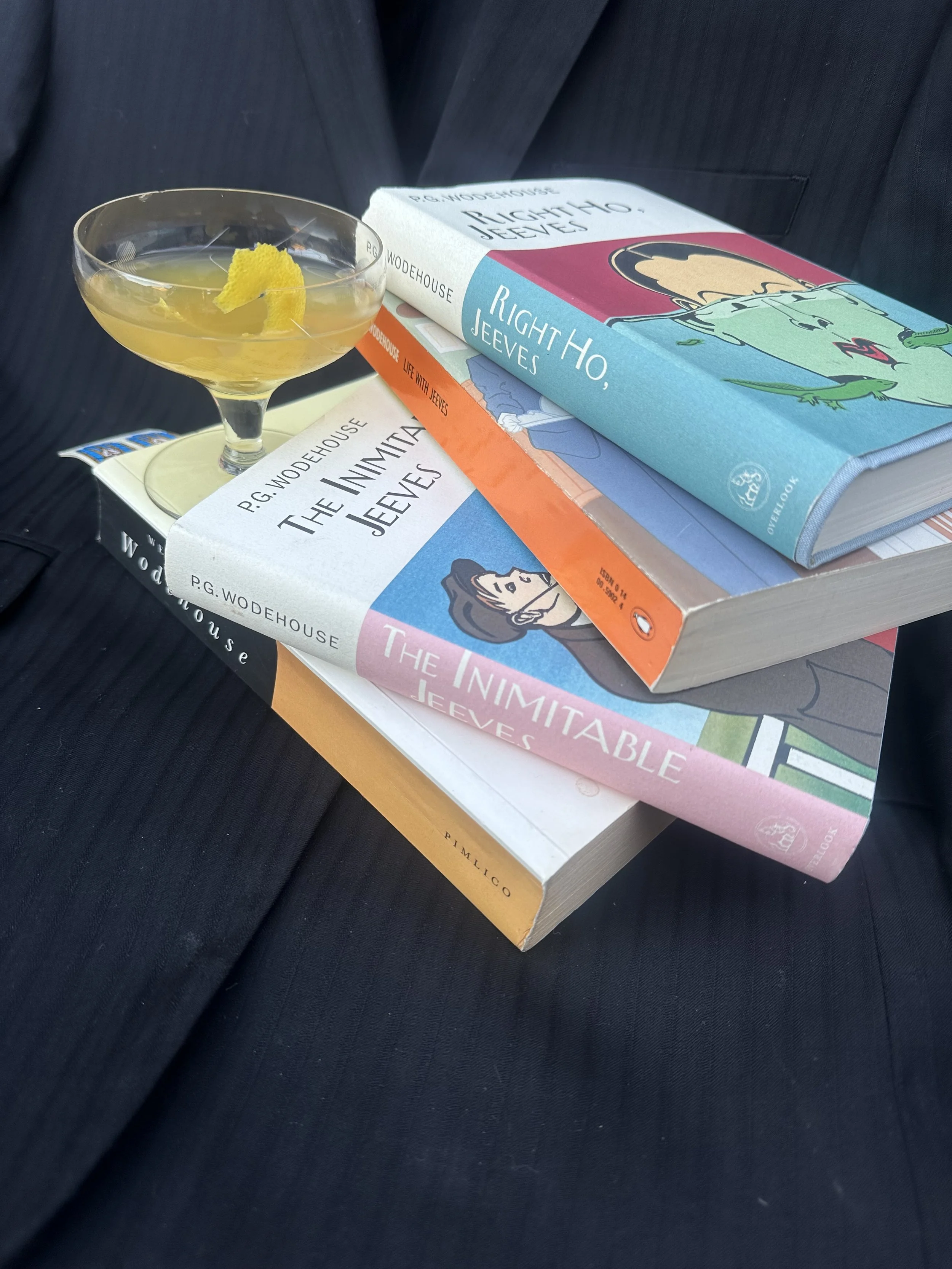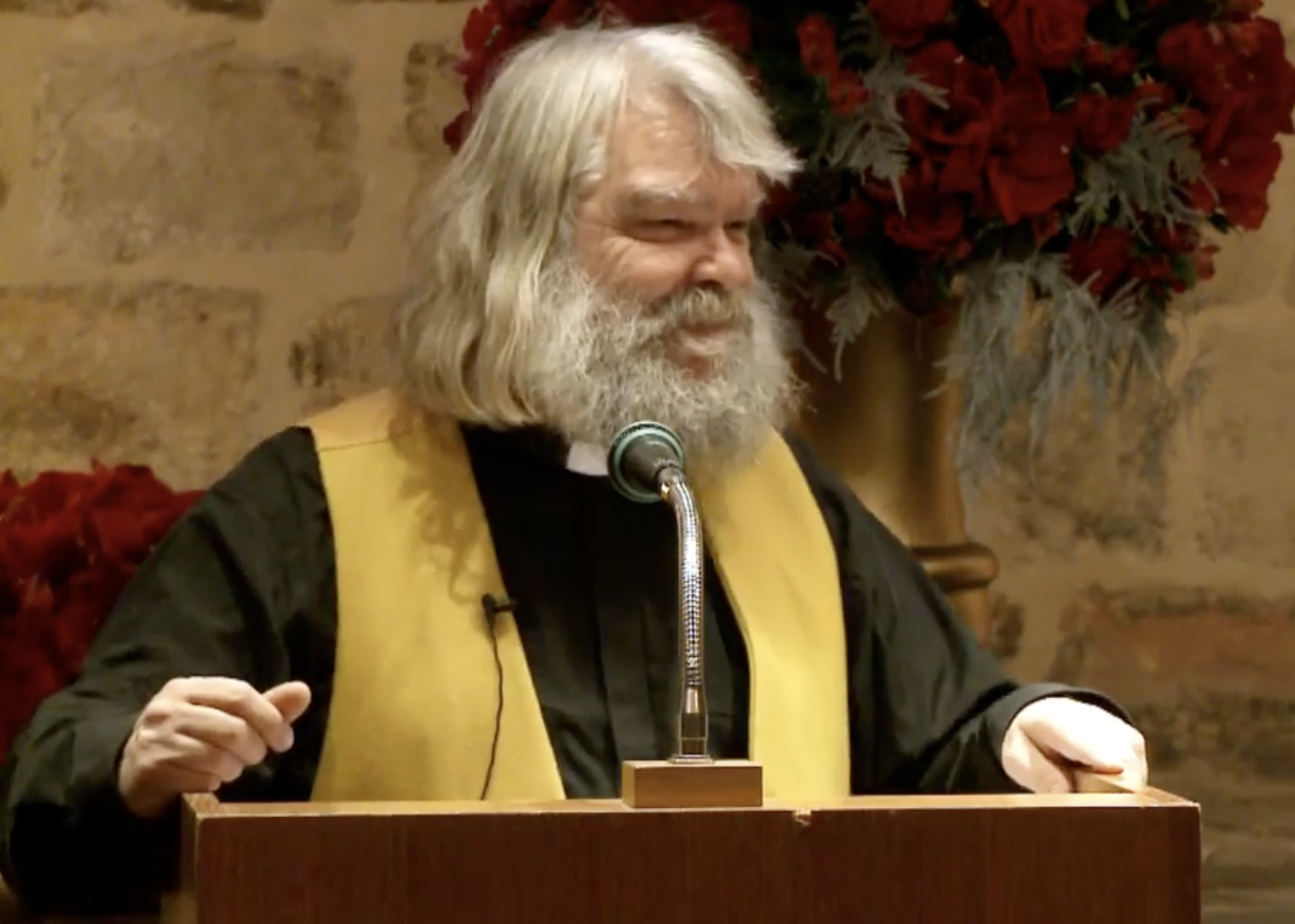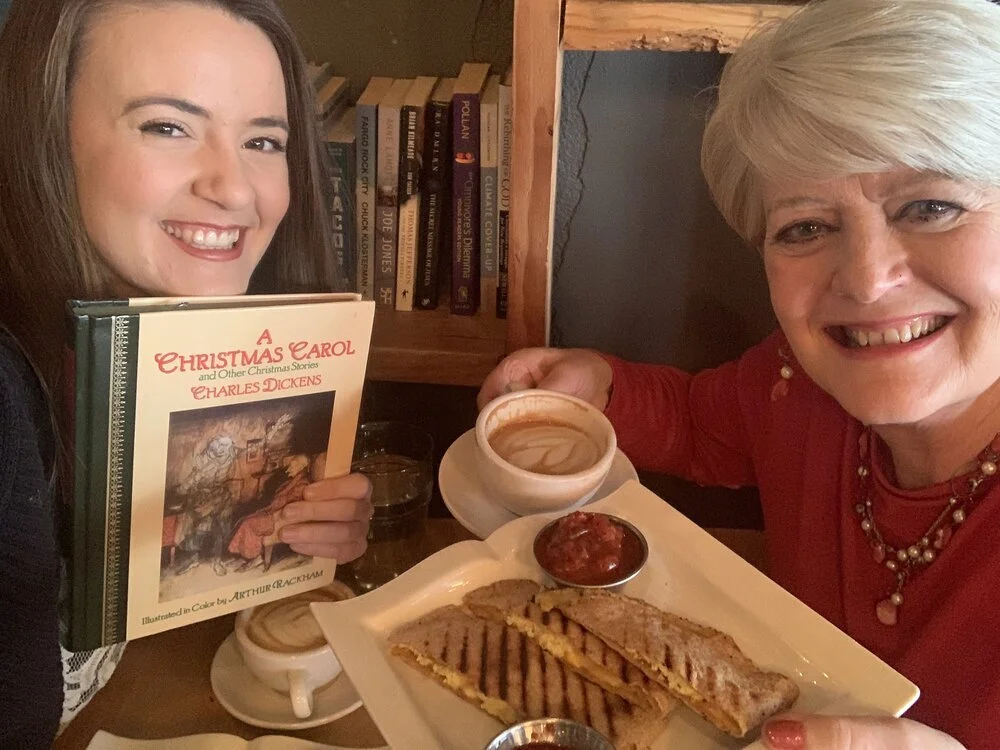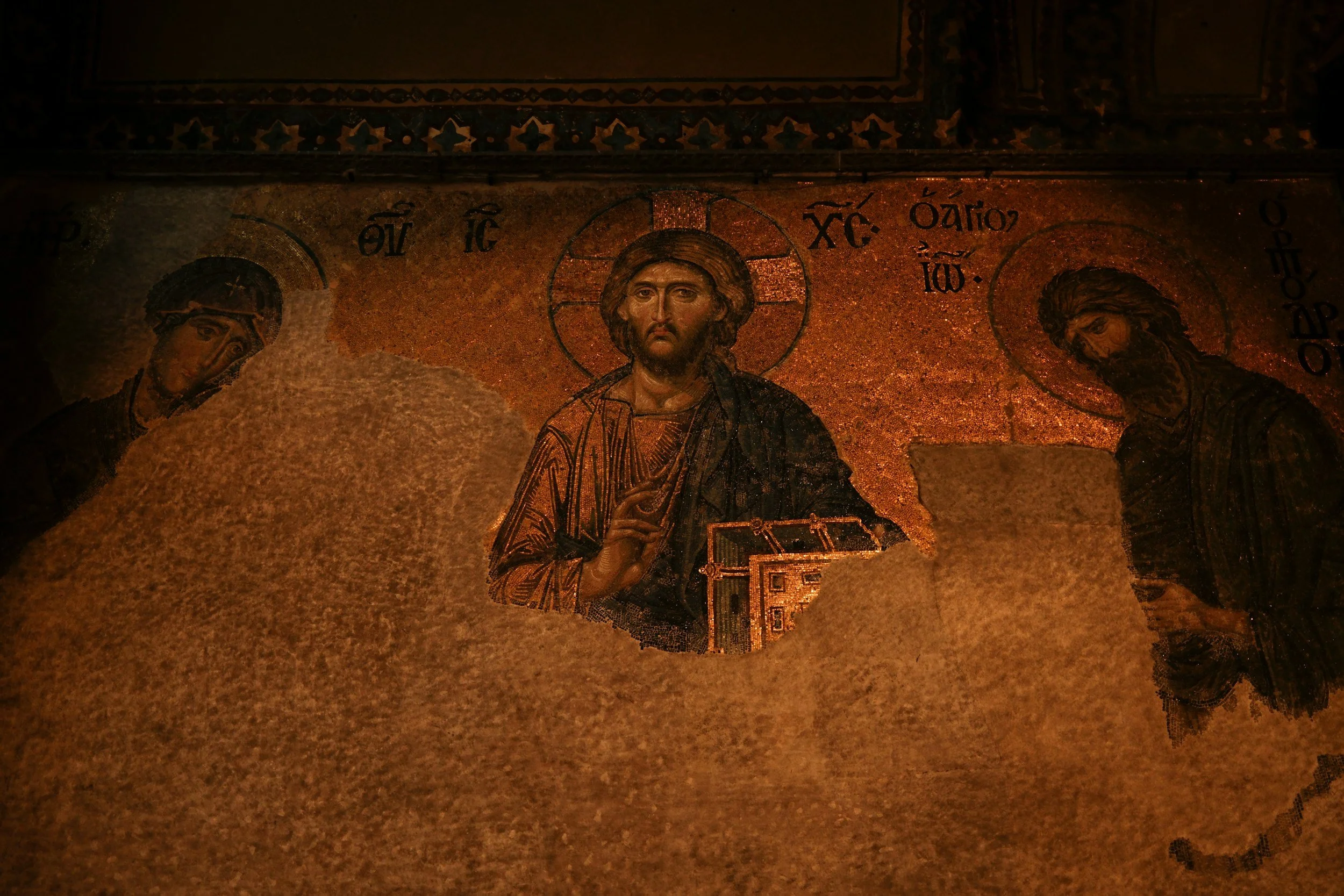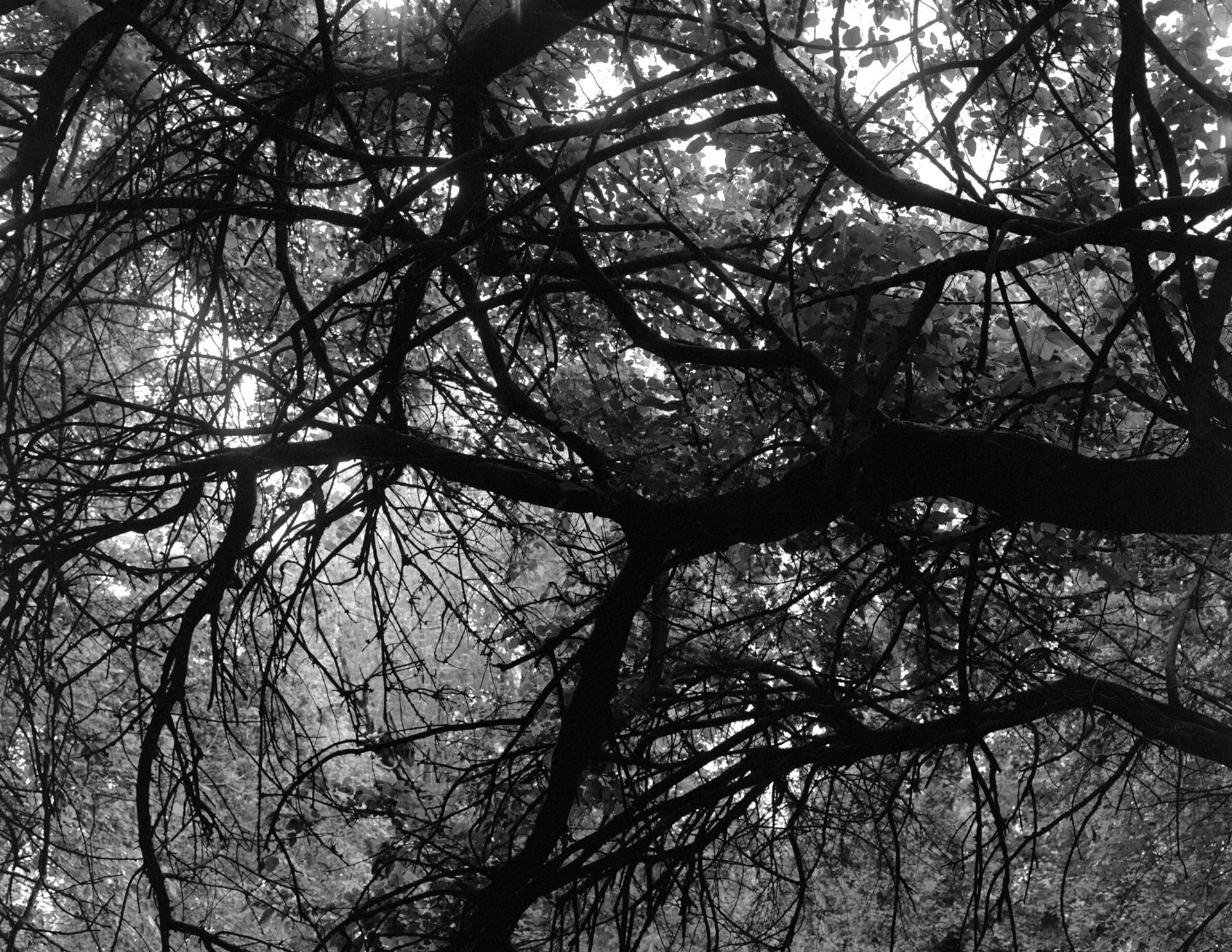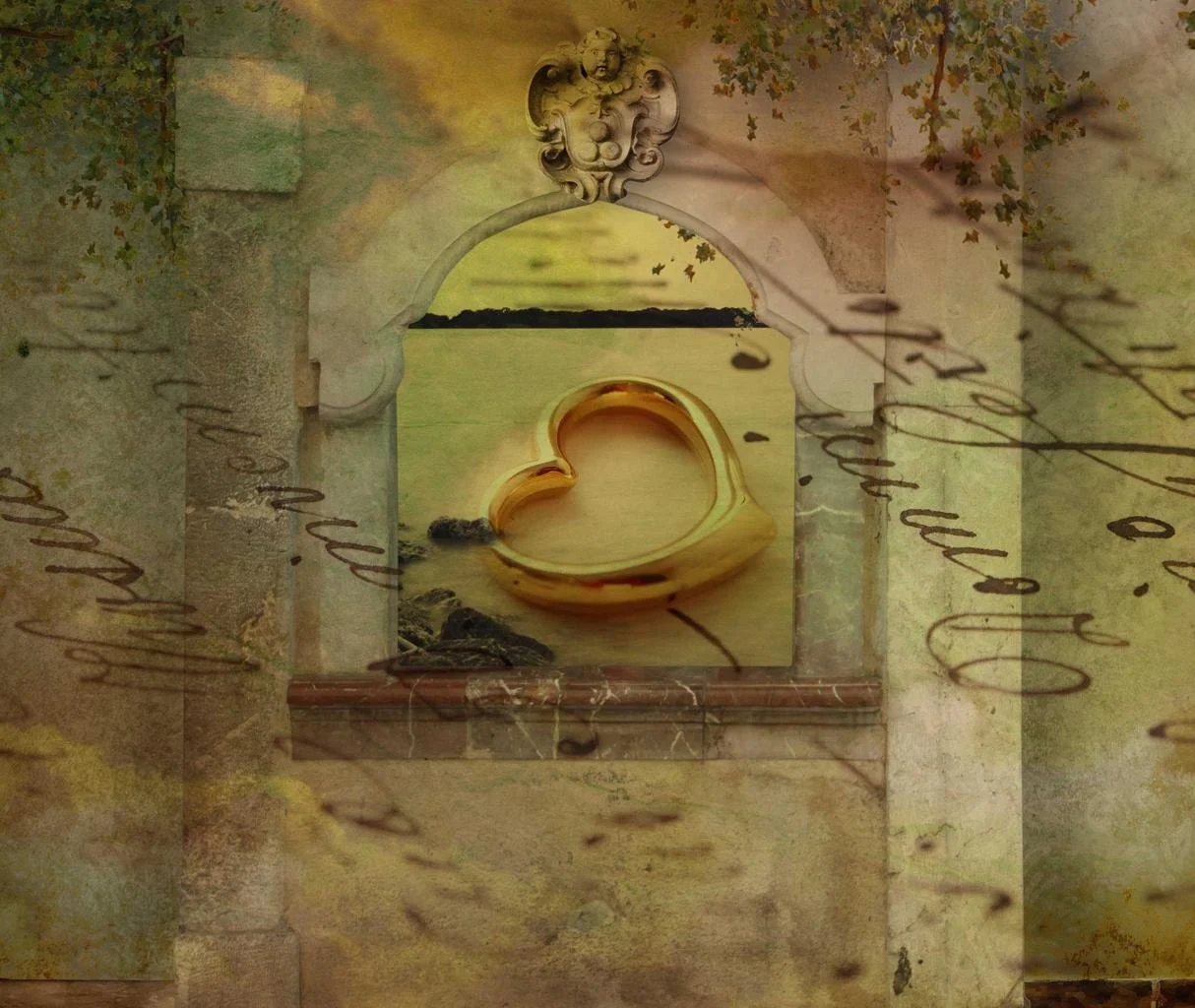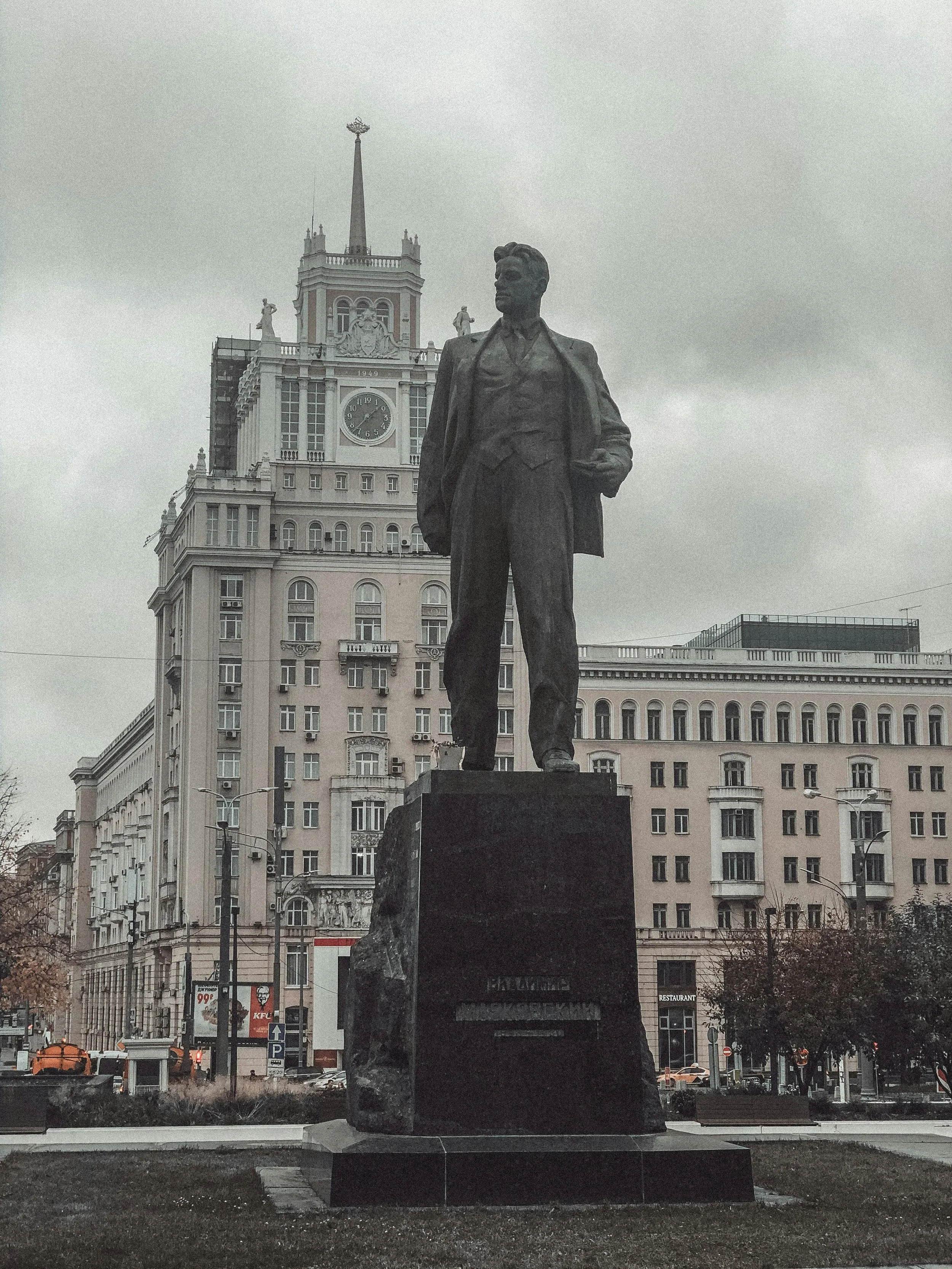




Winter
Winter
GOD IN THE FLESH
december 2025 —February 2026
The season of winter can be full of darkness, cold, and waiting. Winter creates limits: the days are shorter, we’re stuck inside, and the sun itself (or at least its warmth) is elusive. Often we even can be closed off in our own minds, as the dark and cold work their way inward. We are made keenly aware of our longing for restoration.
But the story doesn’t end there. The limits aren’t just a challenge—they are an opportunity.
It is into the midst of our world's limitations that the God of the universe slips after months of darkness in a womb. God is not afraid of constriction. Beginning on that one unique dark night, He instead works within time and space, and offers us an invitation to participate with him.
We embody godly generosity and joviality as a community full of hope precisely in the space and time allotted to us—not in one grand gesture but in the habitual creation of concentrated warmth and cheer. In making rich food and hot drinks. In telling stories. In lingering, as we see each other more fully, in long conversations by the fire.
This is a poignant picture of the life of the Church. While we see darkness and cold all around us, with our redeemed imaginations, we can live in intentional defiance of them, as God in the flesh did.
Our winter content will focus on this theme—the reality of God in the flesh (and what that means!), with a calendar full of warmth, cheer, and hope because our Lord is found with us in our limitations.
For the Season:
-
Featured Articles
-
Imagination Redeemed
Coming Soon!
Believe to See
Coming Soon!
-
Common Room
Saturday, December 13, 2025
12:00pm – 5:00pmLessons from Winter: A Reflective Workshop with artist Rolinda Stotts
Monday, January 5, 2026
6:00pm – 8:00pm
-
Artist Feature
Music Feature
Music related to the advent season, listen to it here.

December
ADVENT
December
ADVENT
Laughter, fit for a king
In a world that oscillates between forced positivity and cynical despair, we've lost something essential: the ancient art of joviality. The ripening of age can bring a heartier laugh, but only paradoxically through the birth of a child, unnoticed by many and tucked away in a manger. Read more about this winter season’s theme →
Imagination Redeemed Podcast Episodes
In every episode, we retell one of the great stories, then follow its illumination to delve deeper into conversation about how to enter into the life of the Christian imagination.
Postcard, Austria
St Nicholas Center Collection
St. Nicholas and the Art of Joy
Through the legendary story of St. Nicholas secretly flinging gold through windows at midnight, we discover how joviality transforms not just moments but entire lives—and why its near-extinction in modern culture may be one of our greatest spiritual crises
Featured Article
Invite P.G. Wodehouse to Your Holidays and be Prepared to Laugh
Annie Nardone pairs the late British humorist's books with two fun drinks in her latest Pages, Pints, and Pours. Read Now →
Anselm Voices
Malcolm Guite’s “Waiting on the Word”
“Advent is the season when we prepare ourselves for the coming of Christ at Christmas – a season for slowing down and reflecting on the great spiritual themes of light and dark, life and death. But while all around us the world speeds up in pre-Christmas rush, it can be difficult to find a place for stillness and contemplation. Malcolm Guite suggests one way is to read a poem each day, and in his new book Waiting on the Word (Canterbury 2015), he chooses a favourite poem from across the Christian spiritual and English literary traditions for every day in Advent and Christmas, and offers a seasonal reflection on it.”
Additional Readings for Advent
Additional Podcasts for Advent
Artist Feature
RETHINKING
OFFENSIVE ART:
Isaac Hans reacts to Andres Serrano's disturbing art and its message.
mUSIC Feature
MOURNING INTO DANCING: A Mixtape Journey
Jacoby Elliott shares how
God, and dance music, brought
healing after a terrible grief.
Gatherings
Common Room
Saturday, December 13, 2025
12:00pm – 5:00pm
Upcoming in January
LESSONS FROM WINTER:
A Reflective Workshop with artist Rolinda Stotts
Monday, January 5, 2026
6:00pm – 8:00pm
THE BOOKS WE READ
Friday, January 30, 2026
7:00pm – 9:00pm

January 2026
epiphany
January 2026
epiphany
For Epiphany
Meeting God Anew in Radiant Rome
The wise men first saw Christ on Epiphany, so it was fitting that this was the day she began to see something new. Everywhere she turned that night, the ancient city revealed a feast of light and beauty.
Original Poetry
-
Those who walk in darkness will see a great light. -Isaiah 9:2
I donned the sky
like slippers
and waded gently,
ripples of night
forming around
each silent step.Bending low
I touched the stars,
hanging hopes
on impossible,
uncountable children,
filling the spaces
between my fingertips
with fragments of light.There is comfort
in this pelagic
pilgrimage, cloak
around my shoulders,
flowing gown
around my knees,
inviting, pulling,
weighing me down
deeper into the dark
waters of baptism.The depths call
me further still
and the sky slips
from my feet until
I float, wholly unshod,
buoyed on waves
of unfathomable grace
toward the dark horizon
where the star on which
all hope hangs will rise. -
Keep watch with me:
watch in the darkest watches of the night,
when watching’s watch-word’s “waiting,”
waiting for enough dim light
to grey the far-off edges of the night
enough for us to blink, and count the sheep, and sigh…
keep watch with me when the wan moon hides her face,
when the sleeping sheep make easy prey,
and the stars like sheep keep pasture out in space.The rabbis tell me David was a shepherd too.
A proud profession, lad, and true,
he, too, kept watch for stupid, thankless sheep
against the lion and the bear. But he
was not so much a shepherd as a king.
His were wars, betrayals, and every prominent thing.
He was too great to keep a shepherd’s cares:
shearing, shovelling, stillborn ewes, long aches—
the agony of staying awake.Papa says Jacob was a better shepherd.
He was a weary man, a speck
beneath the sky all swirled with unnamed stars,
crawling the virgin vastness of the world.That is every shepherd’s doom, in the end:
a sojourner in pastures who descends
in valleys far from eyes and hours and hearths
where he can imagine himself the only man on earth.Sometimes I wonder if Jacob really saw
the angels climbing and descending from God’s gate,
if he really slept in the camp of God,
really wrestled God and won,
or if, despairing, he only dreamed
of a veil drawn back,
dreamed there was ever anything to veil,
dreamed that somewhere behind the cold and black,
behind the stink, the whelped lamb’s wail,
there lurked, might any moment strike
some fierce and secret lightning of the Lord.I have often dreamed of some such lightning.
I have often fancied myself wrestling with God,
have often nodded, dozed, dreamt for one wild moment glory—
only to find I’m grappling with the air,
only to wake, and, glancing wildly around,
find the world still empty, coarse, and bare.But never mind all that.
We have a watch to keep, you and I.
Let us go under the black, cold sky
to wait in the field till the dawn’s hushed light,
and keep watch over our flocks by night. -
You call
Across the winter wheat, to where I stand
And weep for green to wake the sleeping earth.
Not every land is Lazarus, You say. The yield
Is harvested, the story gone to seed.
Help me turn my face from faded fields,
Find the fallow land, and plant my why—
Within Your seed-shaped scars, I see the sky. -
Every month she pours the wine,
Every month she sets the table.
Insofar as she is able
She declares a day to dine
On a feast that’s smoothed as fine
As a newborn baby’s cradle.
Yet, like some unfinished fable
With a moral we can’t defineStill inside her house’s core,
The word barren. Never guests.
Pass the pepper, pass the salt.
Say again it’s not her fault
Every month the table is set,
Every month the wine is poured. -
by Amy Lannigan
We went stargazing in the bright of the moon,
An unwise time,
A frigid west wind bringing the first snow;
Stars erratically obscured
By both light and shifting cloud.
Still we stop and look
At the dippers, the queen, the warrior;
Tranquil in this moment,
Enduring,
As we linger in the luminous night. -
by Amy Lannigan
If there is a
Winter-time
Goal, it is to
Sit by the fire and be
Warmed. Let the silent
Snowflakes swirl and
Fall, pile up in a
Heap, and let time
Drift too.
Let only the wind speak.**This is a golden shovel poem based on Ecclesiastes 3:7. A golden shovel is a poetic form in which a line from a preexisting poem is used to create a new one. Each word from the borrowed line becomes the last word of each line in the new poem. In this case, if you read the last word of each line, it comes out as Ecclesiastes 3:7.
-
Oh patient river, staid and slow, you walk
Along the teeth of terrible Mont Blanc
And daily dip your toes into the thaw
To water valley rivers with your awe-
Inducing, icy waters, mineral-gray,
Glinting with mountain-silt in bright array.
Men dug into your eddies, found a plane,
Bags of forgotten letters, dead as sleep,
Awakened by a drill into your ice.
What secrets must a solid river keep,
Not vulnerable or effusive like
Your watery brothers—still, will you explain?
Imagination Redeemed Podcast
In every episode, we retell one of the great stories, then follow its illumination to delve deeper into conversation about how to enter into the life of the Christian imagination.
On Generosity
Join Brian, Sarah, Christina, and Matthew as they explore Tolstoy’s Where Love is, God is Also and what old virtues (and generosity) mean for our modern days of social media and technology.
P.S. Subscribe to Anselm’s Substack to receive the full show notes, which includes: resources mentioned, further recommended reading and listening, discussion questions, and more!
Featured Content
Anselm Voices
Scott Cairns’s “Alone in the Busy”
Award-winning poet Scott Cairns, Guggenheim Fellow and National Endowment for the Humanities Fellow. Using his own poetry and prose, Cairns explores how we can recover communion in the face of isolation.
Peter Leithart’s “Dostoevsky and the Desire for Freedom”
In prison, Dostoevsky discovered that the desire for freedom was the wellspring of human action. But this wellspring comes from a deeper source.
Music related to our Epiphany content
Created by friends, recommended by members, or just full of light and revelation.
Artist Feature
RETHINKING
OFFENSIVE ART:
Isaac Hans reacts to Andres Serrano's disturbing art and its message.
(Last Winter’s Feature)
CREATING FROM DARKNESS:
Isaac Han and his photography
MUSIC FEATURE
MOURNING INTO DANCING: A Mixtape Journey
Jacoby Elliott shares how
God, and dance music, brought
healing after a terrible grief.
Gatherings
LESSONS FROM WINTER:
A Reflective Workshop with artist Rolinda Stotts
Monday, January 5, 2026
6:00pm – 8:00pm
THE BOOKS WE READ
Friday, January 30, 2026
7:00pm – 9:00pm
______
Upcoming (Tentative) Events
COMMON ROOM
Saturday, February 21, 2026
TIME FOR TEA
Sunday, March 1, 2026

February 2026
February 2026
For Valentine’s Day
How to love an Artist Part 1
Literary fiction writer Mandy Houk offers tips on the care and feeding of a creative spouse!
Read More →
How to love an Artist Part 2
Painter-sculptor Kristopher Orr offers friends and lovers of artists ways to be supportive co-laborers in the sacred dance of art making.
Coming soon (February 14th)
Featured Content
Imagination Redeemed Podcast
In every episode, we retell one of the great stories, then follow its illumination to delve deeper into conversation about how to enter into the life of the Christian imagination.
The Freedom of Limits
In winter, we’re stuck inside a lot, which reminds us of the limits that come with constricted space. Maybe there’s a way to learn to be the kind of person who is sharpened, grown, and even set free by limits. Join Brian, Sarah, Jeremiah, and Christina consider the freedom of limitations with “A Gentleman in Moscow” By Amor Towles as our guide.
Want to dive in?
Subscribe to Anselm’s Substack to receive the full show notes, which includes: a detailed list of topics covered, resources mentioned in the episode, further recommended reading and listening, and discussion questions to utilize for further thinking and conversation with friends!
Anselm Voices
Rod Dreher’s “Christian Artists: Witnesses in the Destruction”
Anselm Fellow Rod Dreher reminds us of the daunting scope of cultural decay inside and outside the church, and of the vital response of beauty and the sacred to it.
sARAH cLARKSON’S “Beauty: God's Theodicy”
In the depths of our literal (or mental) winters, how does beauty help us see God’s goodness in the midst of pain and suffering?
mICHELLE drAKE’S, “Storytelling: Our Inheritance”
How, as readers and writers, do we delve the depths of stories and the heart of story telling?
Engage and Embody
Writing and the problem of christianity
Being a Christian and a writer is a tall order—whether we’re struggling with the link between faith and craft, or with crippling life habits we’ve unconsciously absorbed from the surrounding culture.
In this webinar, Anselm director Brian Brown draws from Thomas Aquinas, Josef Pieper, Dorothy Sayers, and a decade of working with writers and churches to cast a renewed vision for both your identity and your creative process.
Artist Feature
RETHINKING
OFFENSIVE ART:
Isaac Hans reacts to Andres Serrano's disturbing art and its message.
music Feature
MOURNING INTO DANCING: A Mixtape Journey
Jacoby Elliott shares how
God, and dance music, brought
healing after a terrible grief.

